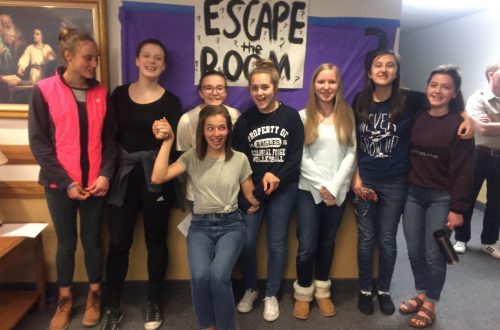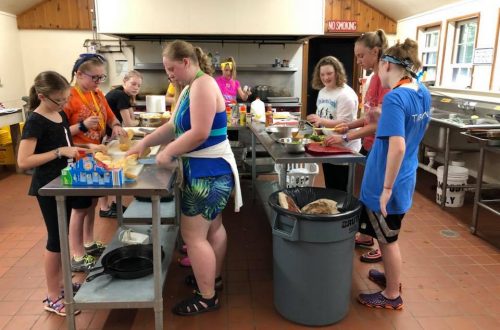Mormon 7 – Mormon’s Final Words
 [example of classroom activity – to view up close, click on picture]
[example of classroom activity – to view up close, click on picture]
Today we studied Mormon 7, Mormon’s final words after having viewed the destruction of his people who were part of a 900 year civilization, now ended.
I’d drawn the two outlines of a body on the board, one with straight lines and one with disconnected lines (to represent the physical body and the spiritual body) with the number 230,000 written over them. “What does this number have to do with The Book of Mormon,” I asked?
They knew instantly. “How many died,” some said. “In the battle,” others said. “That’s right,” I said.
Then I showed them the numbers of some of the communities/towns around us that we live in: 13,706; 29,394; 18,156; 47,166. I said, “It’s as if our towns were wiped off the earth, in addition to even more. That’s what Mormon saw happen to his army’s leaders armies.”
We discussed which is worse: physical destruction or spiritual destruction. And why these Nephites experienced both: they insisted on doing life their way – which happened to be very sinful, which always leads to eventual spiritual (and usually physical) destruction. Why wouldn’t they heed the words of the prophet? Why wouldn’t they change their lives? Because oftentimes change is inconvenient.
During class I raised the title Elder Holland gave one of his talks while university president of BYU, “The Inconvenient Messiah.” I asked the class why it was that Elder Holland would call the Savior “inconvenient.” And why is it that some people won’t join the church, once they understand more about the gospel and what the Lord expects from us?
It’s important these students understand that the Lord loves them. He wants them to lift themselves higher, into a world of honor, integrity, and moral goodness – and He wants this because He knows who they are and how good they can become.
One thing that had struck me from the manual was the connection it made between not finding joy in bloodshed (paraphrasing Mormon’s words) to application of that principle during a time of peace – in other words, not watching violent programming.
We talked about the difference, then, between an individual who does not enjoy watching violent programming and one who does. How can they be told apart? The discussion brought about the fact that probably the first person wouldn’t even watch that kind of stuff or play those kind of video games.
That led perfectly into a few quotes I shared from President Hinckley and Elder Ballard spoken in General Conference about not participating in those kinds of things; in fact, they’ve told us to speak up about objectionable content to those responsible for such programming. So now we have a choice just as the Nephites had a choice. Will we listen to our prophet, or is listening too inconvenient?
We covered all that fairly quickly so that the majority of classtime could be spent listening to Mormon’s words in Mormon 7. I distributed a pattern of a cube I’d made to each student. To help them think about applying Mormon’s words to their own lives, we talked about why it is the Nephites would *not* listen to their prophet (who was doing so much to try to help them). The discussion led to the analysis of “Pride.”
So I shared with them one of the main definitions of “pride” is “a defiant attitude.” I asked, “What is happening when we choose not to listen to the counsel of the prophet or our church leaders when all they are asking us to do is to live a clean life?” The kids knew the answer. And now the goal is for all of us to live it, not just do it.
Which was another point the manual brought out – that some of Mormon’s words in Mormon 7 were for things he wanted his people to know and for other things he wanted them to do. Thus, I gave the assignment to the kids to study Mormon 7 and to find those things (either “know” things or “do” things) which spoke to them. They were to write those things on a section of their cube, filling up each section with Mormon’s words that mattered to them. They spent about 15-20 minutes in quiet reflection time writing and preparing their cubes to reflect what they’d discovered in Mormon 7.
Thus, by the end of the assignment, they were able to process Mormon’s final testament and discover what mattered most to them about Mormon’s words. Once they were done researching, writing, and then gluing together their cubes, I asked the kids to share one thing they’d found on their cubes.
Their words were written on the sides of the cubes; I can only hope they are now also written within their heart.
***
For a free PDF of the cube pattern I created for today’s class, and to receive free monthly tips, simply click here.
Until tomorrow,
just another early-morning-seminary-teacher mom!Free resources for the LDS seminary teacher.



